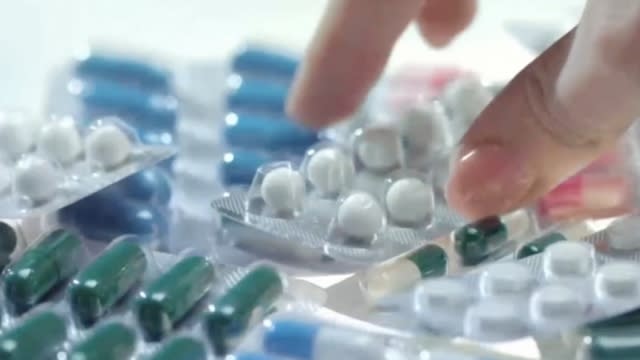Study shows sports supplements are misinforming about ingredients

A new study Monday showed dozens of sport supplement labels are misrepresenting what's actually inside the bottle and in some cases contain stimulants banned by the FDA.
"We have no idea what you're putting in your body," said Dr. Pieter Cohen, a physician with Cambridge Health Alliance and one of the study's authors. "What we found was really shocking."
Cohen and his team studied nearly 60 types of sport supplements sold by online retailers that claim to use up to five new, botanical ingredients — plants used for medicinal purposes — to boost health and improve workouts.
Their results showed 89% of the supplements with the botanicals on the label misrepresented what was actually in the bottle. Some levels of the ingredients were up to 330% more than the listed amount, while 40% of the products didn't have any botanicals at all.
Cohen says that means customers don't have a firm understanding of what's actually in the supplements or what the risks are, because the ingredients have never been tested in humans for safety.
"We only screened for a certain number of chemicals and drugs," he said. "It's possible that there's still other ingredients that might be harmful that we didn't yet identify in these products."
Those ingredients could range from starch, flour or even placebos to make powders look fuller.
The most troubling discovery for Cohen was finding that 12% of the tested supplements contained stimulants banned by the FDA.
Cohen says the stimulants paired with exercise could cause serious health problems.
SEE MORE: How are dietary supplements regulated?
"High blood pressure... heart attacks and something called arrhythmias or the heart's rhythm being out of whack, or even bleeding into the brain, are things that I worry about if someone takes a high dose of a stimulant," said Cohen.
The FDA has very little oversight over dietary supplements, including ensuring they are effective and safe. Current laws do require a supplement manufacturer to oversee the quality and safety of its products but the FDA does not test products or approve claims made on labels.
Regulators can only come in if there's widespread evidence the supplements cause harm or are misleading customers about their ingredients.
But Cohen says even then, the FDA struggles to stay on top of mislabeled and fraudulent products.
"They can't get a handle on getting these off store shelves because manufacturers can simply introduce another brand, reprint their labels and keep on selling their products," said Cohen.
The study notes the sample size was small and results could vary based on batches but still, Cohen says using the supplements isn't worth the risk.
"Just because the ingredients are accurately listed on the label doesn't mean it's safe. There's no FDA approval process of these ingredients. It's just that they were found in plants. That's why they can be sold in supplements," said Cohen.
He says to talk to your doctor about any potential risks or side effects of supplements before taking them and only use products certified by trusted third-party testers like U.S. Pharmacopeia (USP) or National Sanitation Foundation (NSF).
